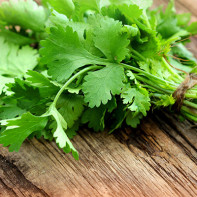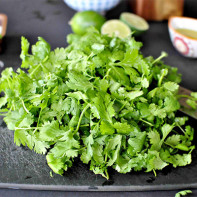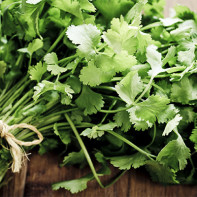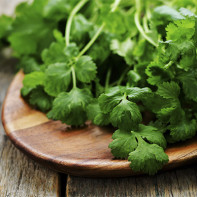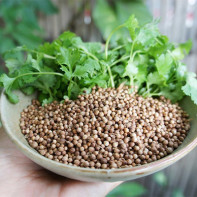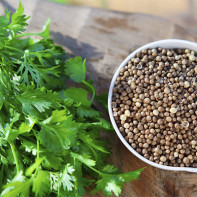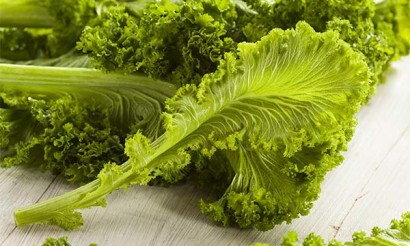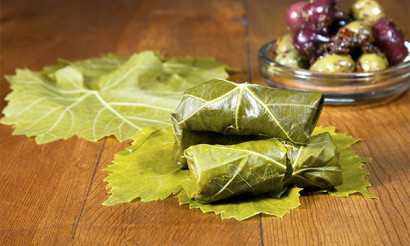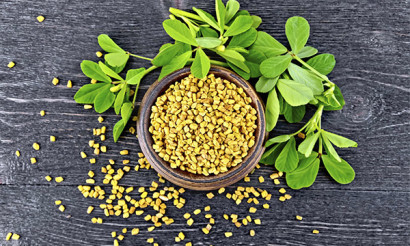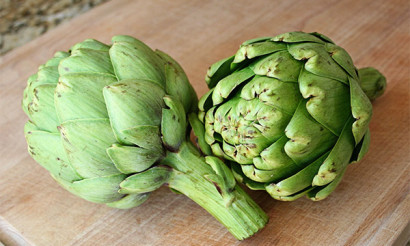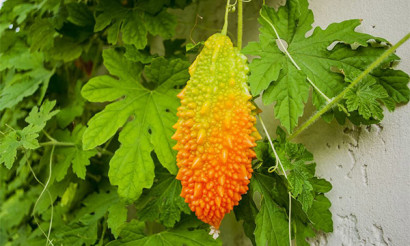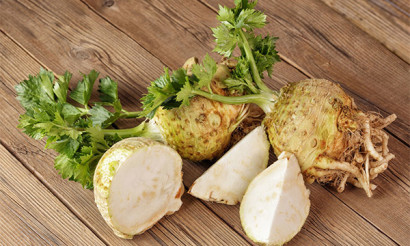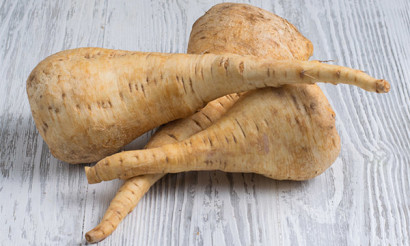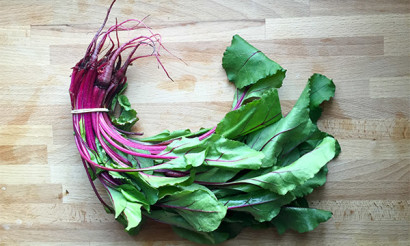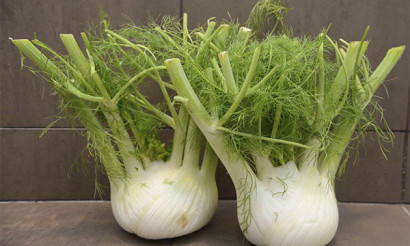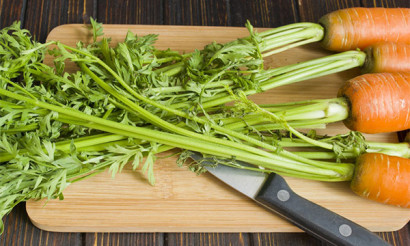Cilantro (coriander): useful properties and contraindications.
Coriander is an herbaceous annual widely used by many people in different fields for thousands of years. This herb is sometimes called "coriander" or "Chinese parsley". At first, this crop was used in medicine and only over time it began to be used as a food.
- What is cilantro and what does it look like
- What is the difference between cilantro and parsley?
- Cilantro and coriander: the same thing or not
- Composition and Calories
- Useful properties of coriander
- General benefits
- For Women
- For Men
- In Pregnancy
- Breastfeeding
- For children
- Slimming
- The Uses of Coriander Seeds
- The essential oil of coriander: properties and use
- Medical use of coriander
- For Diabetes
- For pancreatitis
- For gastritis
- With gout
- For Liver
- Cilantro-based folk medicine recipes
- Digestive System Problems
- For bad breath
- For nervous disorders
- For belching and heartburn
- From dyspepsia and flatulence
- Cilantro in cosmetology
- For Hair
- Skin Tonic
- Soothing Skin Mask
- Acne and acne treatment
- Cilantro Cooking Applications
- What can I Substitute for
- Coriander intake
- Hazards and Contraindications
- How to Choose and Store Coriander
- Can I Freeze it?
- Can we give cilantro to animals?
- How to grow coriander on a windowsill
- Interesting facts about cilantro
What is cilantro and what does it look like?
Cilantro is very similar to parsley, but when the plant is crushed, it begins to emit a characteristic coriander aroma. The stalks are erect, rounded and have an average height of 30 cm. The leaves, which are located closer to the base, have elongated petioles with broad-bladed leaflets. On the upper tier, the leaves are divided into narrow lobes and attached to short petioles. The plant possesses small white-pink flowers, gathered in umbrellas and formed in 3-5 rays. After the flowering period, fruits with 2 seeds appear. Flowering occurs between May and July, although this largely depends on climatic conditions. If conditions are harsh, flowering may last into the fall.
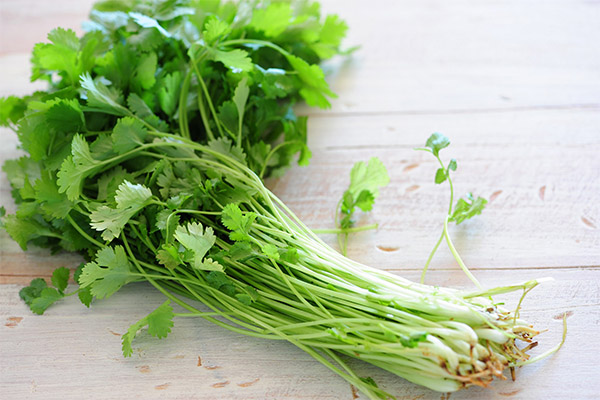
The fragrant spice came to us from the Mediterranean. During the active development of the Roman Empire, the conquerors, along with the planting of their statehood, spread this culture throughout central and western Europe. A little later cilantro migrated to the Foggy Albion, gaining wide popularity there. Today, however, in Britain, especially in the south of the country, the herb is treated as a weed. During the great explorations of new continents, navigators transported it to distant lands. In the Russian Empire, it was not until the early 19th century that the culture began to be cultivated en masse.
What is the difference between cilantro and parsley?
As already mentioned - externally, parsley and cilantro are very similar, and not always even an experienced person can tell them apart. If we talk about external differences, unlike coriander, parsley has larger, brighter and not very wavy leaves. The main differences lie in the taste and smell of the herb. Here, of course, it is very difficult to make a mistake, because cilantro has an aroma that is quite intense. It resembles a mixture of lemon and pepper, some people even note that the herb slightly "reeks of bedbugs". This odor is triggered by decyl aldehyde, a substance contained in the greens.
Parsley has a milder odor, which is usually not unpleasant. When it comes to culinary characteristics, both spices are used as a flavoring and vitaminizing ingredient in various dishes. Both crops are used to produce essential oils and are used for medicinal purposes.
Cilantro and coriander: same thing or not
Some people think that cilantro and coriander are different plants, but this is a misconception because they are two names of the same crop. To be more precise, it is important to note that coriander refers to the roots and seeds, while cilantro is more often called the greens. Each of the parts of the plant has its own flavor and aroma.
Composition and calories
In 100 g of the product contains:
- calories - 23 kcal;
- protein - 2.1 g
- fats - 0.5 g;
- Carbohydrates - 0.9 g.
Cilantro is rich in vitamins (A, B1, B2, B3, B6, B9, C, E, K, PP), macro- and micronutrients (sodium, calcium, potassium and iron), as well as essential oils, pectin, rutin and alkaloids.
Useful properties of cilantro
General benefits.
- Detoxifies the body. Heavy metals that are in the tissues of the human body can cause pathologies. For example, they provoke heart disease, infertility and neurological disorders. Cilantro contains compounds that can affect the activity of toxic heavy metals, so they are converted into easily digestible forms for the body. Studies have shown that the plant also accelerates the excretion of heavy metals. Consumption of coriander has also been found to accelerate the elimination of lead and aluminum deposits from the body. Regular consumption of juice and fresh herbs together with natural antibiotics or antivirals can detoxify the body very effectively.
- Prevents cardiovascular diseases. High blood pressure increases the risk of heart failure, coronary heart disease and thickening of the heart muscle. Diets high in potassium, which is found in cilantro, play an important role in controlling blood pressure. When this substance is consumed sufficiently, the body releases more sodium and water, thereby lowering blood pressure. In addition to lowering blood pressure, coriander also has antitheromatic effects. This medicinal and vegetable plant prevents the formation of atheroma, atherosclerosis, heart disease and stroke. It is also worth noting that the polyphenols contained in the plant help prevent oxidative damage that can negatively affect the heart.
- Reduces cholesterol and triglyceride levels. Chinese parsley helps reduce total cholesterol and triglyceride levels in the blood. Therefore, this product is excellent for people with an increased likelihood of myocardial infarction. The leaves contain acids that help reduce blood cholesterol levels. In addition, the seeds are rich in substances that help control lipid digestion, which affects cholesterol reduction. Seeds also have a strong effect on how the body digests food and absorbs fat.
- Normalizes digestion. Linalool and borneol are substances found in Chinese parsley. They support the digestive function of the liver. Coriander has been used for thousands of years as a remedy for nausea, flatulence, bloating, heartburn and stomach cramps. The use of this spice will contribute to good digestion by producing enzymes and digestive juices that are involved in the process of breaking down food. Experts say: with regular consumption of coriander you can get rid of the symptoms of dyspepsia (upset stomach). The greens can also be included in the diet of children suffering from colic - it will help to effectively solve this problem. It is also worth noting that when using spicy exotic spices and products (for example, curry, hot peppers) people who are not used to such food, it is much easier to tolerate it, if you add chopped coriander greens in its composition.
- Reduces blood sugar levels. The leaves and stems of Chinese parsley help reduce blood glucose levels. They contain quite a lot of fiber, which has a positive effect on the body with diabetes. Phytonutrients contained in greens regulate the concentration of sugar, so during the treatment of diabetes, it is recommended to include chopped leaves and stems of the plant in salads, sauces, as it will help to improve overall health.
- It calms the nervous system. The spice can be used as a remedy to calm the nerves and normalize sleep. Because of its sedative properties, the plant helps to improve the quality of sleep. Linalool, a substance contained in the product, has an anti-stress and anti-anxiety effect on the body. It is worth noting that standard medications, designed to get rid of stress and nervous tension, have a number of side effects - confusion, hallucinations, overexcitation, aggression, memory problems, muscle weakness. Coriander, unlike these medicines, has no side effects.
- It is a natural antiseptic. Some people regularly suffer from sores on their cheeks, lips, tongue or gums. Lemonellol, the monoterpene alcohol contained in the essential oil, is an excellent antiseptic. Therefore, the spice can be used as a natural antiseptic to speed up the healing process of wounds. In this case, it is recommended to regularly rinse your mouth with coriander-based drinks and tinctures.
- Prevents urinary tract infections. Cilantro can be used to prevent and treat urinary tract infections (urethritis and cystitis) because it has antibacterial properties and helps to fight E. coli, Klebsiella, Enterobacteriaceae, Staphylococcus and Streptococcus. Generally, patients take tinctures based on the leaves and seeds of the spice during treatment.
- Protects against bacteria. The leaves and seeds of the plant contain substances that stand to protect the body from the harmful effects of bacteria. For example, E. coli, salmonellae and some types of staphylococcus aureus cannot resist the substances contained in coriander oil. In addition, scientists claim that coriander oil can be used as a food preservative to prevent bacterial contamination of foods.
- Supports brain activity. Studies conducted several years ago showed that adding Chinese parsley leaves to the diet can prevent impaired brain activity, especially the areas responsible for memory. Cilantro can also help treat various pathologies, such as Alzheimer's disease.
- Coriander helps fight cancer. Because of its antioxidant properties, cilantro is considered a natural product that can protect the body from cancer. The antioxidants contained in the leaves of the plant (beta-carotene, vitamin C and E, caffeic acid, ferulic acid, quercetin and kaempferol) are extremely useful in the case of cancer because they help fight it effectively. The substances help reduce the risk of oxidative stress, protect DNA from carcinogens, and block the spread of cancer cells.
For women
The vitamins contained in the plant are beneficial to the female body, especially for serious discomfort during the critical days. Cilantro supports the female body so that it normalizes the menstrual cycle, gets rid of pain, discomfort with uterine cramps. Use it is recommended to those members of the fair sex, who are especially hard to tolerate PMS. Decoctions and teas based on herbs contribute to relief during menopause.
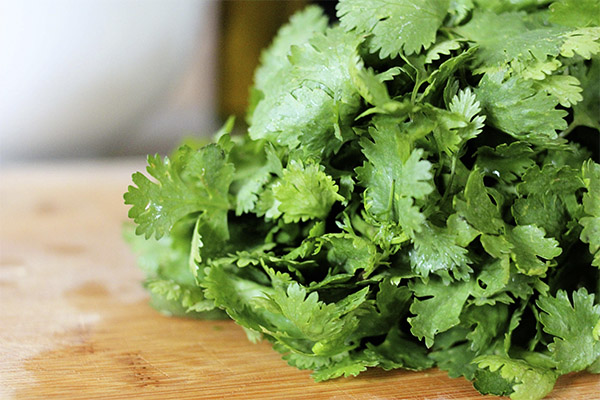
In addition, many women suffer from metabolic disorders. Spice can help normalize the metabolic processes so that for a long time this problem will not remind about itself.
It is known that women are more susceptible to nervous disorders, often this translates into sleep disorders, headaches and chronic fatigue. Chinese parsley will help normalize the work of the nervous system, relieve stress and moping, headaches and insomnia. Tea based on this spice will contribute to a calm, good sleep and awakening.
For Men
Chinese parsley has beneficial effects on the genital system and potency. It is used to treat cystitis, pyelonephritis, urolithiasis, and prostatitis. Coriander is an excellent immune stimulant. The plant supports the resources of the body, which protects it from harmful influences and helps to fight infections.
The spice is also useful for men because it has a positive effect on the heart muscle and blood vessels, reduces the risk of heart attack, supports vascular health and improves the overall condition. The value of this product for the male body is based on its composition, because it includes a large number of essential substances.
Men are especially sensitive to disorders associated with the genitourinary system. Very often it affects the nervous system. In this case, cilantro will also help, since this spice helps to normalize the nervous system.
When pregnant.
Although coriander is a therapeutic and medicinal plant, its use is strongly not recommended at the beginning of pregnancy, because the product can increase the risk of miscarriage. It can also provoke blood clots in early pregnancy.
It is worth noting that fans of Chinese medicine are better to put aside medicines for a while, because they often contain spice seeds. After three months of pregnancy it is already possible to include small portions of herbs in the diet or use the product in the form of infusions. It is important to remember about the moderation of consumption, and that it is not desirable to do it every day on a regular basis.
Women who are in the early stages of pregnancy and have already managed to eat a little cilantro, do not panic. A small amount of spice will not have a negative impact on the baby. However, in the future, you should still avoid the consumption of coriander at least until the second trimester. After that period it is possible to use aromatic herbs in dishes, because they will enrich the body with a number of useful substances. At the same time, it is important that the herbs be thoroughly washed and cleaned of chemicals before use.
If we talk about essential oils, this product is prohibited during pregnancy, because it can harm the fetus. And it is forbidden to use oils throughout pregnancy. The substances they contain stimulate muscle contractions and can provoke premature labor.
When you are breastfeeding
During breastfeeding, herbs can benefit both mother and baby, but only if neither of them is allergic to the product, as well as observed moderation of consumption. Cilantro contains many useful substances, but one of the most important is folic acid. It is necessary that the child gets it in sufficient quantities, because it significantly affects the fullness of its growth and development. At the same time, some experts say that during lactation you should refrain from the consumption of greens, at most it can be used as a condiment.
For children
Since the spice has a rich taste and smell, you should not rush to include this product in the diet of a child. Chinese parsley is rich in biochemicals that can disrupt the infant's digestive system, so you should start introducing herbs into the baby's menu no earlier than 8-9 months after birth. If everything is done correctly, the product will not only do no harm to the child, but also enrich his body with beneficial substances.
Young children are prone to flatulence and stomach pain - problems that cilantro will help to solve. The herb is great for children's bodies, as it is rich in antioxidants. In addition, the plant has antimicrobial properties, which will help in the fight against various infections.
Coriander is also useful in treating diseases such as jaundice, hepatitis and cholestasis. Children very often suffer from intestinal parasites, which, settling in the small intestine, take away nutrients from the body. Spice has antihelminthic properties, so it can rid the body of parasites. Since infants are more susceptible to toxic substances, they should be regularly fed coriander, which will help cleanse the body of harmful buildup and protect it from toxins in the future.
If a child is allergic to foods such as apples, carrots, celery, kiwi, peanuts, parsley, anise seeds, fennel, it is worth consulting a pediatrician before including cilantro in the diet. Usually children are given the herb in the form of a condiment, but sometimes prepare juices on its basis.
When losing weight
Cilantro is a low-calorie, fiber-rich product, so it will have a positive effect on weight loss. Greens are good for satiety and give a feeling of satiety, which allows you to avoid snacking and eat less in general.
The fiber contained in the product helps to reduce cholesterol and triglycerides, which also affects the weight. In addition, coriander is rich in oils that improve the digestive system and thus help better digest food. The spice also cleanses the body of heavy metals, is involved in the removal of toxins, which contributes to weight loss.
Chinese parsley prevents the accumulation of fat on the inner walls of the arteries and veins, while reducing blood glucose levels. Infusions of cilantro are usually consumed during weight loss. The plant can also be used fresh to flavor dishes.
The benefits of coriander seeds
Cilantro seeds are no less useful than the greens themselves. They have antimicrobial and antibacterial properties and help get rid of infectious diseases, such as gastrointestinal diseases. The seeds are appetite stimulants, improve digestion, and help with excessive gas. They are often included in the composition of choleretic drugs, because they have a positive effect on the liver. The seeds are also useful in the case of colds, they can be used as part of expectorants and in recipes for decoctions for vascular diseases.
Cilantro essential oil: properties and uses
The oil has useful properties that are used in various fields to treat many ailments. Here are some properties and applications of this product:
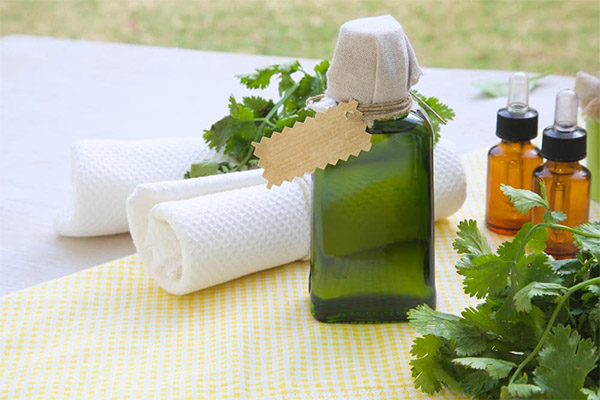
- Colds. The oil supports immune cells in the fight against disease-causing bacteria.
- Nervous tension, rheumatism, neuralgia and arthritis. The oil normalizes the nervous system.
- Meteorism and diarrhea. The product gets rid of heaviness in the stomach, supports appetite and digestion.
- Muscle aches, fatigue. Warm baths with the addition of coriander oil can be prepared to relax the muscles.
- Skin diseases. The product is used to treat dermatitis, skin itching and various inflammations.
- Fungal infections. The oil can be smeared on the affected areas.
- Excessive sweating. The oil can help reduce sweating.
Cilantro in medicine
Cilantro is also used in the field of medicine. The spice is often part of the complex therapy for infectious lesions. The herbs also help improve brain function and support heart health. It can be used in cases of hysterical attacks and neurogenic choking.
For diabetes mellitus
Cilantro is good for diabetes because it helps reduce blood glucose, removes excess fluid and toxins from the body, and improves overall health. People with diabetes are often prone to obesity. To solve this problem, it is recommended to include the spice in the daily diet. Chinese parsley will also help reduce blood pressure and improve blood composition. For diabetes, it is important to consider the glycemic index of the product. Coriander has a low glycemic index (30), so it can be consumed in this disease.
For pancreatitis
Cilantro is one of those products that are allowed in pancreatitis. However, misuse can lead to unpleasant consequences. The spice contains vitamins and oils that have an enveloping effect, which will have a positive effect on the pancreas. You can consume it, but not during an exacerbation of the disease. During remission, it is allowed to eat up to 2 tsp. greens a day (preferably heat-treated).
Gastritis
There is no unambiguous answer to the question - whether cilantro is allowed with gastritis. The reason is that the plant has both positive and negative properties. The composition of the diet may vary depending on the stage of the disease or acidity. Specialists allow the use of coriander in the remission phase and forbid to eat the spice at exacerbation. At the same time, it is possible to include herbs in the menu only in the case of reduced acidity of the stomach.
At gout
With gout, a variety of greens is generally contraindicated, because they contain many acids that can harm the body. Cilantro is forbidden to use in any case, regardless of the method of preparation.
For the liver
Cilantro has beneficial effects on the liver, especially in cases of liver dysfunction. The spice improves appetite, it can be used as a spice, infusion or fresh.
Cilantro-based folk medicine recipes
For Digestive System Problems
- Grind coriander seeds (20 g) in a mortar, pour hot water (1 liter) and insist about 10 minutes.
- Use 1 cup of the drink after meals.
From bad breath
- Dried coriander grass (1 tsp.) pour boiling water (2 cups) and put on the fire for 10 minutes.
- Rinse the mouth if you have an odor.
In nervous disorders.
- Spice seeds (1 tbsp.) pour vodka (100 g).
- Pour the drink into a dark bottle and let it infuse (2 weeks).
- Strain the infusion. Take 45 drops throughout the day. The course lasts 10 days.
From belching and heartburn
- The seeds (2 tsp.) pour boiling water (1 cup), cover and infuse for 20 minutes.
- Strain the remedy. Take 1 cup of drink after a meal up to 2 times a day.
From dyspepsia and flatulence
- Seeds (1 tsp.) pour boiling water (1 cup), infuse for about 2 hours.
- Strain the remedy. Take a third of a cup 30 minutes before a meal up to 3 times a day. The course lasts up to 4 weeks.
Cilantro in cosmetology
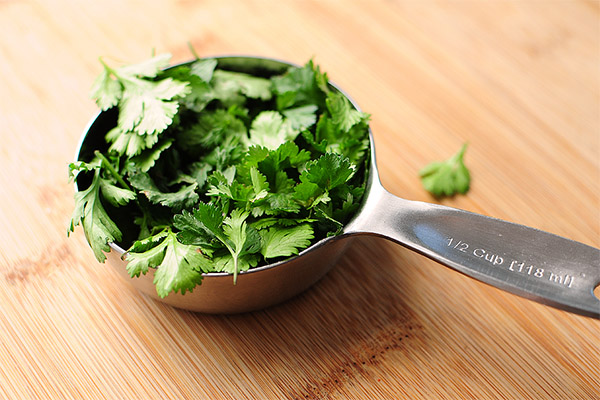
For hair
- Mint (1 tbsp) mixed with coriander greens (1 tbsp).
- Pour boiling water (1 liter) and allow to stand for about 30 minutes.
- Rinse your hair with this infusion after washing.
Skin tonic
- Chopped leaves of the spice (1 tbsp.) pour boiling water (1 cup).
- Allow the means to infuse about 20 minutes.
- Tonic wipe the skin up to 2 times a day.
Calming mask for the skin
- Mix cilantro with yogurt, put in a blender and whip.
- Apply to face and skin.
- Wait for 30 minutes. Wash your face with warm water.
Remedy for pimples and blackheads
- Mix lemon juice (1 tsp.) with cilantro (1 tsp.).
- Apply the mask to the affected areas.
- Wait for 6 minutes. Wash your face with water.
Using cilantro in cooking
The specific taste of cilantro has divided people into those who can't stand this herb and those who can't imagine dishes without the addition of this spice. It can be eaten both fresh and dried. It gives brightness and freshness to dishes. Usually the product is added at the last stage of cooking. Coriander is a great seasoning for soups, salads, meat and fish dishes. It goes well with many products, gives them a characteristic taste and incomparable flavor.
Chinese parsley is included in various seasonings, be it curry or berbere. It is also used as a flavoring for meat dishes, sauces, puddings, syrups and various drinks.
What you can replace it with
Instead of cilantro, as a rule, parsley is placed in dishes. This, of course, is not an equal substitute, but the most appropriate. Some advise replacing it with dill, celery or basil. In some cases, you can use anise, saffron or thyme.
Cilantro intake
The daily rate of consumption of coriander greens - 35 g, seeds - 4 g.
Harms and contraindications
Contraindications largely depend on the individual characteristics of the body, as well as the quantity and quality of the product. Since the greens contain various acids, carotene, aromatic substances and other highly active elements, it is contraindicated for people prone to allergies.
It is also forbidden to eat Chinese parsley during exacerbations of gastritis and pancreatitis. The spice is also not recommended in cases of coronary artery disease, hypertension and thrombophlebitis. Overconsumption of the product increases the risk of heart attack, diabetes, nervous system and sleep disorders.
How to choose and store cilantro
When choosing a spice, you need to pay attention to the freshness of the greens and the strength of the bundles. Do not buy a bundle if the plant is sluggish or rotten. There should be no yellow or blackened spots on the leaves.
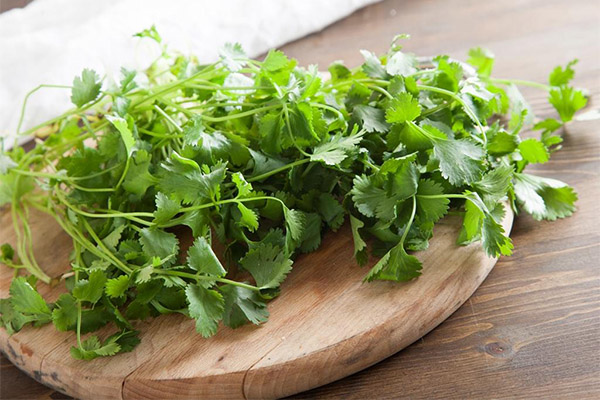
Cilantro is usually dried or frozen for storage. To dry the spice cut it into 1 cm long pieces and put on a clean paper (but not newspaper) with a 1 cm layer. Dry at 20 ° C, preferably in the shade without access to dust and insects, or you can use an electric dryer (temperature up to 35 ° C), dry until all the moisture is gone. Pour the dried herb into an airtight glass jar and store in a dark place at room temperature and relative humidity of up to 55%.
Can it be frozen
To freeze, chop the stems and leaves, place them in ice molds, and pour olive oil over them. These cubes can be used for pastas, hot potato dishes and vegetable soups.
Can we give cilantro to pets?
Coriander is not harmful to dogs. It is usually added in a chopped form to various porridges and feeds. It is forbidden to give cats the spice, because it can provoke poisoning.
How to grow coriander on a windowsill
To grow coriander on the windowsill, it is worth knowing a few rules:
- The roots of the culture are not very developed, so you should plant up to 3 bushes in one small pot.
- It is desirable that the pot for planting was made of clay, there should be no enamel on it.
- The seeds should be sown 1.5 cm deep (do not soak).
- Before the first shoots appear, the planting should be covered with a film. When the first leaves appear, the sprouts should be thinned out, leaving the most vigorous and strong ones.
- Water infrequently, but abundantly. The soil should be fully saturated with moisture. During the winter, watering should be reduced.
- Light a minimum of 4 hours a day.
- Seeds will germinate after 7-14 days, the greens will be ready to eat in a month. Flower ovaries should be pruned.
- It is recommended to cut off the top ovaries.
- Plants should not be transplanted.
It is important to note that the plant is hard to tolerate dry soil, it likes light and irrigation. During the winter period, it is necessary to organize normal lighting. It is better not to save on soil, and the soil should be decontaminated. To eat greens all year long, you need to plant at least 3 pots, and at different times of the year.
Interesting facts about cilantro
- The substances in cilantro can help neutralize the effects of alcohol and sober a person up.
- The spice is attributed unusual properties - the plant can awaken the creative abilities of a person.
- Coriander seeds are used to make candies.
«Important: All information on this site is provided for informational purposes only. for informational purposes only. Check with your health care professional before using any of our recommendations. specialist before using any of the recommendations. Neither the editors nor the authors shall be liable for any possible harm caused by materials."

